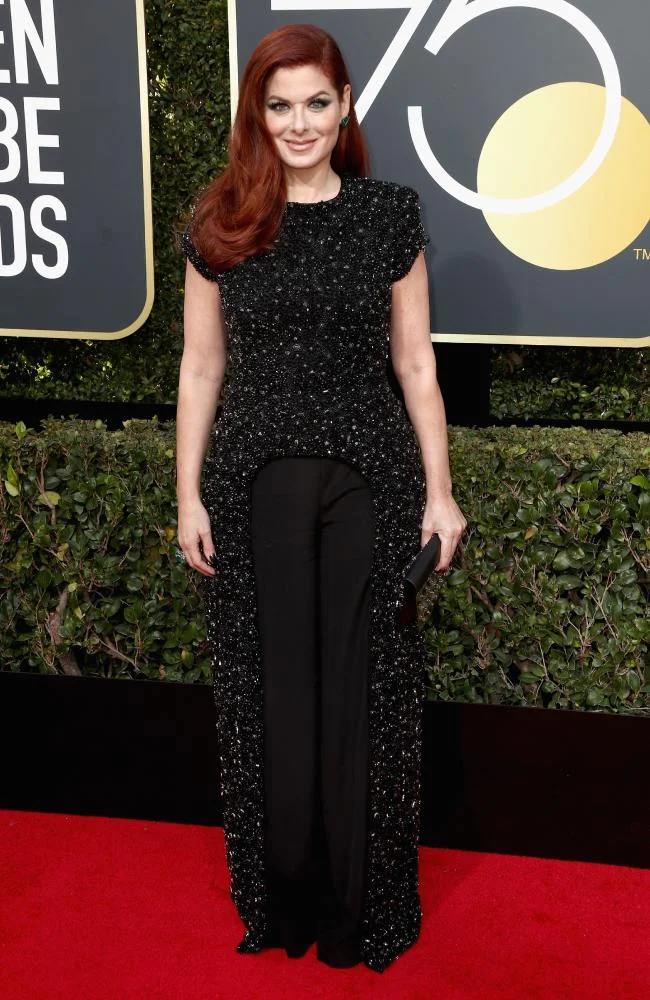Mayim Bialik Opens Up About Objectification In Hollywood As A 'Non-Traditional'-Looking Woman
The Hollywood actress label is (generally) attached to the following beauty standards: white, thin, long legs, perfect skin, bouncy hair... Need I say more? By now, you all know the drill. With numerous women - Hollywood actresses, in fact - stepping forward in to tell their stories in the recent Harvey Weinstein scandal, another conversation comes into play beyond sexual assault and the silencing on victims: the exploitation and objectification of women in Hollywood. The New York Times, who were leading the charge with various Weinstein exposés has also been giving women wonderful opportunities to open up about feminism, sexual assault, and general female exploitation in the form of their opinion editorials (notably Amber Tamblyn and Lena Dunham's - check them out if you haven't done so already). This time, the mic - figuratively - has been passed to Mayim Bialik, the woman behind The Big Bang Theory's loveable Amy Farrah Fowler.
In her piece, Being A Feminist In Harvey Weinstein's World, the actress spoke about how she initially wasn't sure about pursuing her now-three decade strong career in a world where women have constantly been objectified and used by men in positions of power. She also, interestingly, touches on the hidden benefits of not being seen as conventionally pretty, or being 'average'-looking, and how this has helped safeguard her in a world of handsy executives and rapist producers.
'I have always had an uncomfortable relationship with being employed in an industry that profits on the objectification of women,' Biliak wrote. 'Though pressure to “be like the pretty girls” started long before I entered Hollywood, I quickly learned that even as a preteen actress, young girls with doe eyes and pouty lips who spoke in a high register were favored for roles by the powerful men who made those decisions.'
She even went on to say how her looks impacted her castings and the ‘type’ of role that she essentially ended up playing, Amy Farrah Fowler included: ‘As a “nontraditional”-looking woman, I came back to an industry that had me auditioning for the “frumpy friend” or the “zaftig secretary,” though I eventually landed a role that has earned me four Emmy nominations. Is it a surprise that I play an androgynous, awkward, late bloomer?'
Whilst Biliak discusses the drawbacks of not conforming to Hollywood’s typical beauty ideals, she acknowledges that this also has offered her a (so far) save passage into the world of entertainment. 'And yet I have also experienced the upside of not being a “perfect ten.” As a proud feminist with little desire to diet, get plastic surgery or hire a personal trainer, I have almost no personal experience with men asking me to meetings in their hotel rooms,’ she continues. Those of us in Hollywood who don’t represent an impossible standard of beauty have the “luxury” of being overlooked and, in many cases, ignored by men in power unless we can make them money.' However, given her comparison of being less of a target in the world of Hollywood, it’s important to know that this generalises having pretty privilege as a key ‘selector’ for those who are sexually assaulted or abused. Whilst Biliak may have put partial reasoning down to her unconventional beauty, such a factor isn’t enough to keep women safe. In short, it’s not just the world’s most beautiful women that get sexually assaulted.
Despite being now 41 and still safe in such a predatory industry, Biliak still acknowledges that her clear past doesn’t mean that she can’t be vulnerable to any threat now, and describes the personal choices that she makes as 'self-protecting and wise'. On the same note, she talks about how she chooses to dress modestly and keep her sexuality saved for behind closed doors, which has proven controversial in the conversation surrounding women’s fashion choices as justification for sexual assault. Note: regardless of open embracing of sexuality, short skirts, low-cut tops, or any other reasoning, women are not prey to male advances.
Even though she actively makes decisions that can offer as a safeguard for her, Biliak wrote of how she still believes that regardless of vulnerability level, and women are not there for men’s taking. Her - in places, controversial - piece sets the tone for her experience in Hollywood, a lucky one that could have gone down a much uglier and traumatic route.
'In a perfect world, women should be free to act however they want. But our world isn’t perfect. Nothing — absolutely nothing — excuses men for assaulting or abusing women,’ Biliak adds. But we can’t be naïve about the culture we live in.'








